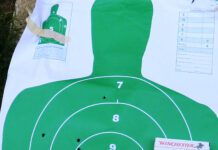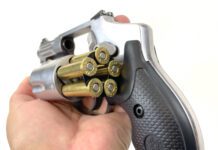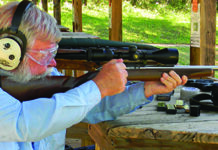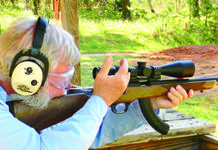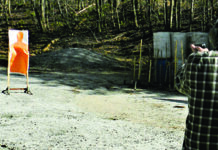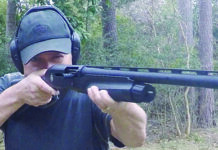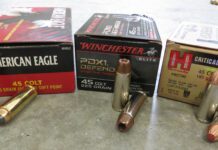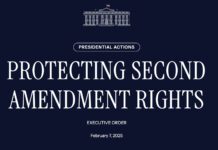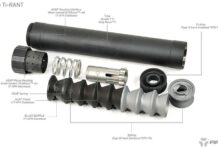Gun Tests subscriber, Lance A. Ito recently sent us a copy of a Washington Times editorial that is bound to give Charles Schumer, Josh Sugarman and the rest of the Brady Bunch a fit in their respective snits.
It related the downfall of a shotgun toting 17-year-old, Dervonne Marquise Moore, bent on cashing in at the expense of a Jacksonville, Florida, restaurant. According to the Times, as Mr. Moore allegedly ordered everyone to the floor and tried to force the waitress to open the cash register, 69-year-old Oscar Moore, no relation, pulled out his .22 Magnum revolver and shot him in the mid-section. Before the robber could change his order, a second patron, 81-year-old Robert Guerry, pulled out his own .22-caliber Derringer, and also shot him. Mr. Moore, the younger, was later apprehended at a local hospital and charged with attempted armed robbery.
The Times points out that ordinary, honest senior citizens like Moore and Guerry would have been unable to defend themselves, or the others in the targeted restaurant, without having been issued concealed carry permits. Such permits, the editorial states, were once handed out sparingly if at all. From 1984 to 1992, the city of Los Angeles refused to issue a single concealed carry permit. In New York City, cab drivers who routinely fear for their lives couldn’t get permits. Florida was the first to reverse the process by wrenching decisions to issue away from government officials. The state of Florida said that if citizens could meet certain objective criteria, officials “shall” issue the needed licenses.
When 22 more states followed Florida’s lead, the Times editorial continues, the noted criminologist Betty Friedan warned: “Lethal violence even in self-defense only engenders more violence.” It then debunks the warning by pointing out that from 1987 to 1992 in Dade County, Florida, police kept records of all arrests and non-arrests involving concealed carry permit holders and have since abandoned the practice due to the lack of incidents.
In concluding, the Times quotes lawyer Jeffrey Snyder and a report issued by the Cato Institute: “shall-issue” licensing laws “are creating no reported law-enforcement problems in any of the 25 states that have enacted them. Dodge City has not returned; the blood is not running in the streets.”
ATF Seeks Comments On Instant Check Rules
The Bureau of Alcohol, Tobacco and Firearms (ATF), preparing to amend its regulations to require federal firearms licensees to contact the new National Instant Criminal Background Check System (NICS), will accept public comments on the subject until May 20, 1998.
Adopted as a permanent provision of the Brady Handgun Violence Prevention Act, the instant background check is scheduled to go into effect late this year. The instant check replaces the five-day waiting period currently in effect. Mandatory background checks by local law enforcement were found unconstitutional last year. NICS will advise the licensee whether the system contains any information that the prospective purchaser is prohibited by law from possessing or receiving a firearm.


